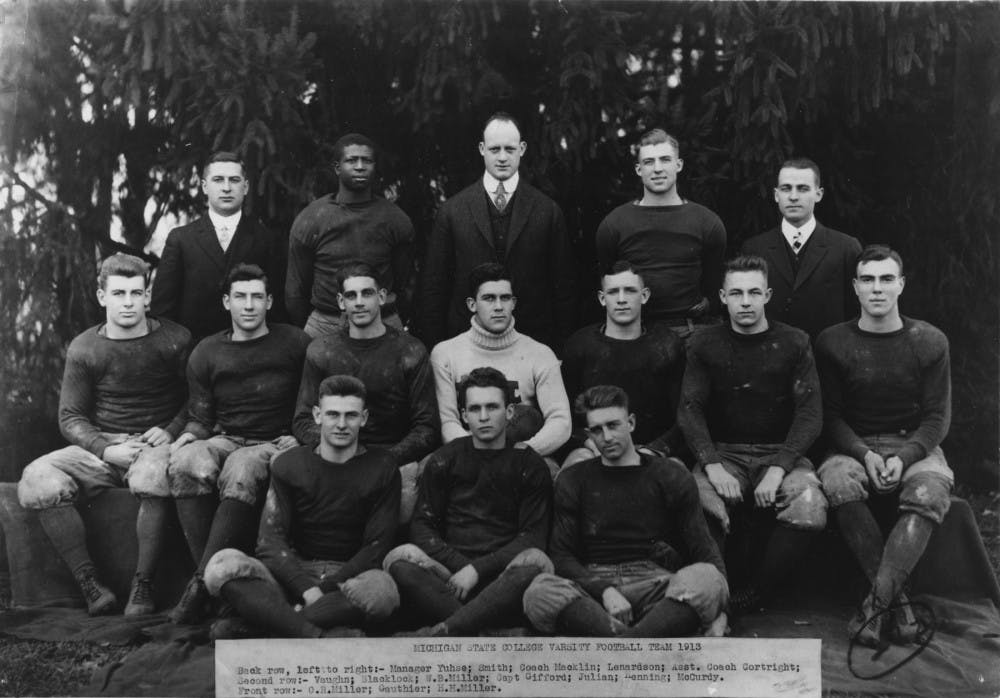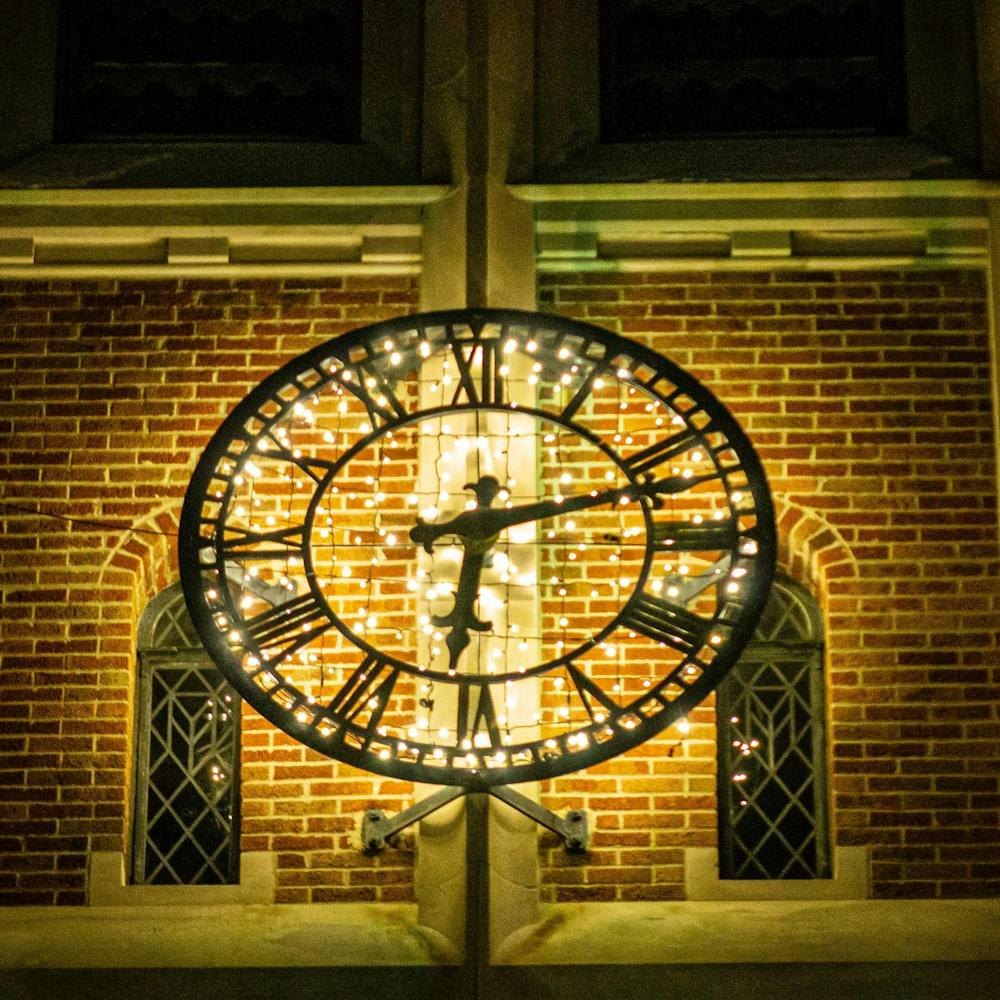John Belcher III recalls sitting on his grandfather Gideon Smith’s lap during family holidays. Belcher listened, he said, while Smith told tales of monumental importance and pointed to aged pictures in a scrapbook.
This is the moment Belcher thinks of when remembering the first time he learned about his grandfather, who was MSU’s first black varsity athlete in 1913. The stories Smith told, little did Belcher know, were the beginning steps of a path for justice and equality. A path that was started generations before Smith, but was made easier for future black Americans because of courageous people like him.
“That my grandfather played that kind of role is significant, along with the type of person that he was,” Belcher said. “He was just the right person, with the right character, with the right set of attributes to take on that responsibility, at the time.”
Smith played for MSU from 1913-15, when the school was known as the Michigan Agricultural College, or MAC.
According to a historical recollection of Smith’s playing days, when he went to get a uniform, he was turned down by MAC’s coach at the time, John Macklin.
Nevertheless, Smith wasn’t going to let that stop him. Smith wore a high school uniform loaned to him by a friend and went to practice anyway.
Impressed by his play, Macklin allowed Smith to join the freshman team in the fall of 1912 and he became MSU’s first black varsity athlete as a sophomore in 1913.
MSU history professor Juan Javier Pescador said it was a regular practice for northern universities to have one talented black player on their football teams, from the 1890s until after World War I.
“In northern institutions, also the Ivy League and the Big Ten, African-American athletes (participated) on football teams only if they (had) exceptional talents,” Pescador said. “(Teams were) not open to athletes of color that (were) of the same quality as their white counterparts — it (was) only open to athletes of color that (had) extraordinary capacities, and just to one of them.”
As a varsity athlete, Smith started at tackle for the MAC Aggies, the former name of the Spartans, and helped lead them through the first successful era of MSU football, as they accumulated a 17-3 record through his three seasons.

One of Smith’s greatest accomplishments during his time at MAC was helping lead the MAC Aggies to a 12-7 win over the University of Michigan during his sophomore year, which marked the first victory for MAC over their in-state foe.
A veteran Detroit newsman of the time Eddie Batchelor said of Smith after the win over Michigan: “Smith had arms that seemed to be 10 feet long, plus the agility of a cat. When a play came through the position he folded up the whole side of the opposing line as if he were playing an accordion.”
Despite his size, Belcher said he has come to attribute a gentleness to his grandfather’s powerful stature.
“He was very clearly a very powerful person, but that power was expressed in ways that might seem counterintuitive to how we typically think of power,” Belcher said.
Belcher said he is still amazed at the level of his grandfather’s gentleness, especially considering all of the indignities he had faced during his playing days as a race pioneer.
“Those types of indignities over that period of time, and to come out of those types of experiences with the level of heartfulness that he had and gentleness — I still marvel at that,” Belcher said.
According to historical reports, MSU was not able to offer scholarships for football during Smith’s playing time, so in order to help him pay for his time at MSU, the university provided him with a janitorial job at the Peoples Church.
Following Smith’s senior season in 1915, the people of Lansing presented Smith with a golden watch in appreciation of his achievements while at MAC, even in the face of adversity.
“What stuck with me, what resonated with me was just his love for, his fondness for his period of time at Michigan State,” Belcher said. “That was something that came through very loudly and clearly was a sense of pride.”
Gideon Smith died on May 6, 1968, and MSU showed its appreciation for all that Gideon Smith did in 1994 when the school inducted Gideon Smith into its Athletics Hall of Fame.







